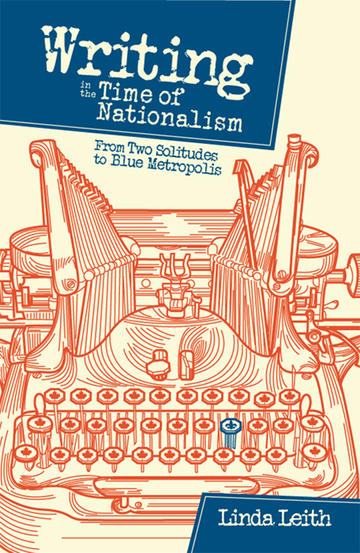Montreal was the literary centre of Canada in the 1940s, a hotbed of literary activity in both English and French crowned by the international success of Hugh MacLennan's Two Solitudes and Gabrielle Roy's The Tin Flute. With the rise of nationalism in both English Canada and Quebec, Toronto emerged as the literary centre of English Canada, with Montreal the literary centre of Quebec. In literary terms, Canada and Quebec became two different countries, with two different languages and two different literatures. English Montreal went into decline and its once-great writers were marginalized.
Writing in the Time of Nationalism: From Two Solitudes to Blue Metropolis is an insider's story of the writers who have been caught between these rival nationalisms. Herself a writer, Linda Leith was a leading figure in the creation of the Quebec Writers' Federation, and she is founder of Blue Metropolis Foundation. The story she tells is the story of a literary community that went missing from the map of Canada for a generation, and that has reemerged over the past ten years in a renaissance that has garnered international attention, winning some of the major book prizes such as Booker and Dublin IMPAC.
In the 1940s, Montreal was the literary capital of Canada. Modernist poets writing in English flourished alongside internationally published realist novelists, both anglophone and francophone. The post-war boom that shifted Canada's economic centre westward to Toronto coincided with rising support for independence among Quebec francophones. Between the early 1960s and the referendum of 1995, a series of political crises brought Canada to the brink of dissolution. As Linda Leith recounts in this candid, engaging memoir, these events cast English writing in Quebec into a void between competing nationalisms. The return of Anglo-Quebec writers to international prominence may simply mean that global marketing has become stronger than the most stubborn nationalism.



